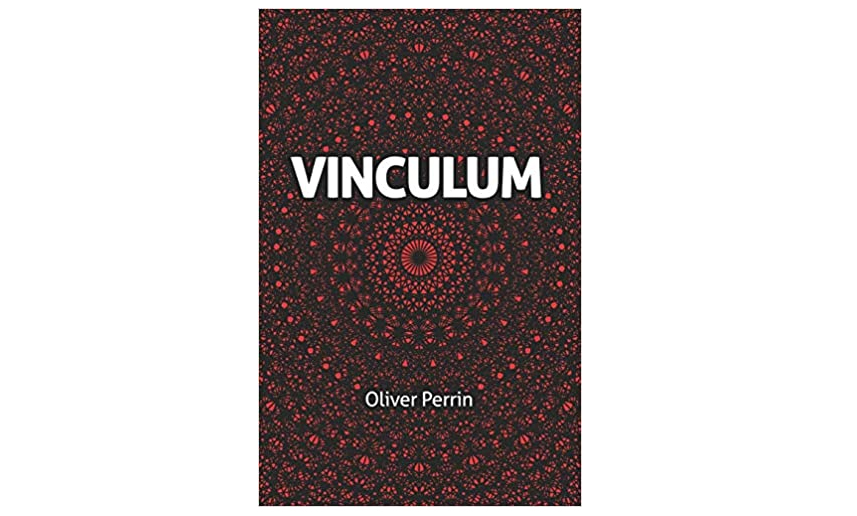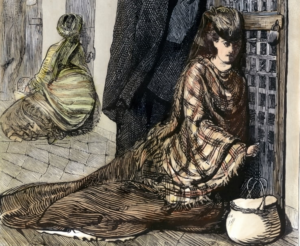Vinculum: a review

By Brendan Heard.
Vinculum is a hard-boiled dystopian science fiction set in Istanbul in the near future (2076) by Oliver Perrin. It is a kind of cyberpunk and therefore reminiscent of the famous works of William Gibson, an author I would have read many moons ago. Although all cyberpunk finds it’s origins in the future-setting-film-noir-detective story elements popularized by Phillip K. Dick, Gibson was probably the last ‘wholly cyberpunk’ author before his settings and themes were hyper-popularized by films like the Matrix movies.
Vinculum is not like these previous examples, for reasons not surprising to followers of Perrin’s videos or other work. It has elements of Eastern philosophy and religion, arcane history, and cultural-political speculation, all delivered in a meticulous writing style.The story follows a professional book thief who is hired to find a ‘living book’, an individual who has memorized an old tome by Giordano Bruno, using a memory technique which involves associating text with a visual layout of a familiar building or home, then taking a mental walk through each room. This rhetorical ‘canon of memory’ method was used by classical orators such as Cicero and Quintilian, and there are many similar historically interesting ideas found in this novel, and such references are likely a hallmark of most good sci-fi. Perrin in particular has a certain fascination with concepts of symbols and language and how they relate to knowing.
Here is another example from the book:
“The technique is based on bringing the available systems of understanding, the elements of rational thought and distinction, into harmony based on three. We’ll ue base twelves as it’s rich enough in factors… The number of units in a set predetermines the possibly results of your inquiry. That’s why merchants and old school communists worship a dialectic with a short and long end of the stick. They are stuck in good and bad, right and wrong, dominance and submission because of their damned base ten rational thought. It’s easiest to divide with it by two. Me versus you, black and white, sinners and saved, good classes and bad. We’re not going to go that route. The seal of twelve is the richest possible matrix of factors before sixty so we’ll use an old Indo-European system.”
Where Vinculum also departs from the likes of Gibson is (apart from abstaining from a fascination for samurai) is in it’s harder and more realistic prediction of a future reality, not just in relation to the very ancient past, but based on events in our present. The world is darker, grittier, more polluted, and life is cheaper than ever. There is also a surprise genre crossover twist which I cannot give away. Additionally there are many references to observation and philosophy that the author has espoused in his public speaking, but in greater depth and detail, including semiotics, Turkish history, the Renaissance, technology, and even (perhaps most interestingly) Islamic philosophy.
If you are familiar with this genre , which enjoyed it’s heyday as the final living phase of a Western science fiction culture (before woke quotas ensured the future was chick-lit in space) then you will enjoy this book. If you are a fan of Oliver’s philosophy and studies in semiotics, you will likely also enjoy it. if you enjoy inventive fiction generally, or are merely feeling nostalgic for a story ‘outside our present time’ then you will enjoy Vinculum.
I thoroughly enjoyed reading this myself, having not tried to read a science fiction (apart from my own) in many years. Sometimes you forget the joys of simply reading a story where you cannot guess what will happen.
> Vinculum on amazon.
> Oliver’s twitter











